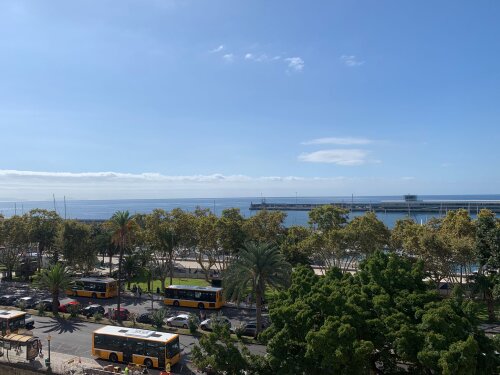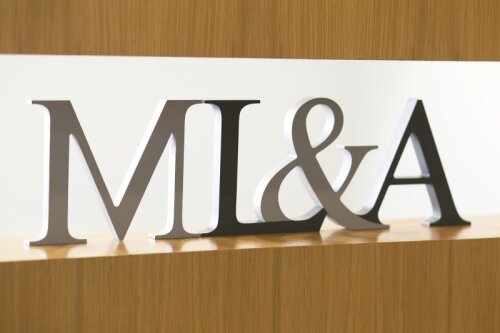Best Class Action Lawyers in Funchal
Share your needs with us, get contacted by law firms.
Free. Takes 2 min.
List of the best lawyers in Funchal, Portugal
About Class Action Law in Funchal, Portugal
Class action lawsuits, known in Portugal as ações populares or collective actions, allow groups of individuals to unite and pursue legal action against a defendant for shared grievances. In Funchal and the broader Portuguese legal framework, class actions are an important means for protecting collective interests, such as consumer rights, environmental protection, and public health. These actions help level the playing field between individuals and larger organizations or entities, making legal redress more accessible when many people are affected by the same issue.
Why You May Need a Lawyer
Navigating a class action lawsuit can be complex, especially because of the legal requirements and procedural hurdles involved. Some common situations where residents or organizations in Funchal may seek legal help include:
- Disputes with large corporations over defective products or unfair commercial practices
- Environmental claims such as pollution or community health hazards
- Consumer rights violations affecting multiple individuals, such as misleading advertising
- Data privacy breaches impacting thousands of people
- Workplace issues where many employees are affected by the same wrongful practice
A specialized lawyer can guide groups through the proper legal procedures, increase the chances of a favorable outcome, and help coordinate collective representation effectively.
Local Laws Overview
In Portugal, including Funchal, class actions are governed primarily by the Lei da Ação Popular (Popular Action Law), found in Law 83/95 and articles in the Portuguese Code of Civil Procedure. These laws define who can initiate a class action, what issues are eligible, and the procedural steps needed. Notable aspects include:
- Eligibility for class actions includes residents, associations, and certain public bodies
- Class actions can address areas like consumer protection, environmental law, public health, and cultural heritage
- There is no need to identify every individual claimant at the outset – a group or association can act on behalf of all affected parties
- The court may order broad notification if the outcome could affect a wide group
- Damages, when awarded, are distributed among all eligible claimants
- Court fees and legal costs may be shared among participants, but the law also provides for special conditions in cases of public interest
Understanding these regulations is crucial for anyone considering a class action in Funchal.
Frequently Asked Questions
What is a class action lawsuit in Portugal?
A class action lawsuit lets a group of people with similar legal interests join together to bring a claim against a party or organization. In Portugal, it is called ação popular and is available for issues that affect public or collective interests.
Who can initiate a class action in Funchal?
Any citizen, non-profit association, or public entity with a legitimate interest can start a class action, provided the issue affects a significant number of people or public interests like health or the environment.
What types of cases are eligible for class action in Funchal?
Cases involving consumer rights, public health, environmental claims, cultural heritage, and quality of life are commonly pursued through class actions.
Do all claimants need to join the class action before it starts?
No, a class action can be initiated by a group or association, and others can join after notification. The court may order a public notice to identify those affected.
How are damages awarded in class actions?
If the court rules in favor of the claimants, compensation is distributed among everyone covered by the decision, whether or not they participated directly in the proceedings.
Are there costs involved in starting a class action?
Yes, but the law provides for reduced or special court fees in cases of public interest, and costs may be shared among participants. Some associations offer legal aid to support claimants.
How long does a class action take in Funchal?
Class actions can take significant time due to the number of parties, the complexity of the case, and the need for extensive notification. Typical cases may last from months to several years.
Can a class action be settled out of court?
Yes, settlements are possible and are sometimes encouraged to resolve disputes efficiently. Any settlement must be approved by the court to ensure fairness to all affected parties.
Are class action outcomes binding on all affected individuals?
Yes, the outcome of a class action is binding on everyone included in the notice or who falls within the defined parameters of the affected group.
What role do associations play in class actions?
Non-profit associations and organizations often lead class actions, providing legal expertise, organizing claimants, and representing the collective interest in court.
Additional Resources
People seeking advice or support for a class action case in Funchal can consult:
- Portuguese Bar Association (Ordem dos Advogados) – for finding qualified lawyers
- DECO (Consumer Protection Association) – for consumer-related collective actions
- Ministry of Justice (Ministério da Justiça) – for general guidance and legal information
- Local town hall or municipality offices for notifications and public notices related to class actions
- Environmental NGOs such as Quercus for environmental class actions
Next Steps
If you believe you have grounds for a class action in Funchal, start by gathering all documentation related to your case and identifying others who share the same concern. Next, consult with a lawyer experienced in collective actions or approach relevant associations for support. They can help assess the merits of your case, guide you through the complex procedures, and ensure your rights are effectively represented. Early legal consultation is key to maximizing the chances of a successful outcome.
Lawzana helps you find the best lawyers and law firms in Funchal through a curated and pre-screened list of qualified legal professionals. Our platform offers rankings and detailed profiles of attorneys and law firms, allowing you to compare based on practice areas, including Class Action, experience, and client feedback.
Each profile includes a description of the firm's areas of practice, client reviews, team members and partners, year of establishment, spoken languages, office locations, contact information, social media presence, and any published articles or resources. Most firms on our platform speak English and are experienced in both local and international legal matters.
Get a quote from top-rated law firms in Funchal, Portugal — quickly, securely, and without unnecessary hassle.
Disclaimer:
The information provided on this page is for general informational purposes only and does not constitute legal advice. While we strive to ensure the accuracy and relevance of the content, legal information may change over time, and interpretations of the law can vary. You should always consult with a qualified legal professional for advice specific to your situation.
We disclaim all liability for actions taken or not taken based on the content of this page. If you believe any information is incorrect or outdated, please contact us, and we will review and update it where appropriate.












